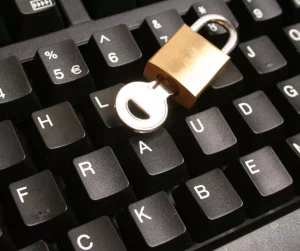 Before the COVID-19 pandemic, most fraud investigations took place in the office or other work facilities. This made it easy for investigators to gather and analyze data and interview suspects and witnesses in a face-to-face setting. But then a new type of fraud emerged: remote fraud.
Before the COVID-19 pandemic, most fraud investigations took place in the office or other work facilities. This made it easy for investigators to gather and analyze data and interview suspects and witnesses in a face-to-face setting. But then a new type of fraud emerged: remote fraud.
If your company allows employees to work from home — either temporarily or permanently — you may need to conduct a remote fraud investigation. In addition to suspects and witnesses working remotely, those tasked with conducting investigations (including outside experts) may also be remote. Here’s how to manage these situations.
Policies and procedures for remote fraud
First, develop policies and procedures for remote investigations. If you already have written policies for traditional fraud investigations, use them as a starting point. Some features, such as the role and processes of investigators may remain basically the same.
Cover the entire process, including:
- The technology solutions you’ll use to communicate with employees and investigators,
- Backup options in the event of technical problems, and
- How you’ll share relevant files and documents — both electronic and paper.
Once you’ve developed a draft, have legal counsel review it.
Conducting interviews
Before conducting remote fraud interviews, prepare subjects for the process. Let them know approximately how long the interview might take and whether they must review documents before or during the discussion. Stress the importance of sitting in a quiet location with minimal background noise where they can remain undisturbed throughout the interview.
To provide your team with ample opportunity to detect verbal and nonverbal signs of deception, subjects need to keep their video feeds on the entire time. Most computers, smartphones, tablets, and wireless connections can facilitate video calls, but be sure to test subjects’ devices and Internet connections before interviews. Consider having a trusted member of your IT department perform the test, instructing this employee not to discuss anything specific about the interview or the fraud allegations.
There are a couple of things you should keep in mind. First, any conversation conducted via video conferencing will be recorded and can be used in a subsequent court case. So discuss interview plans with your attorney.
Second, expect the unexpected. For example, how will you proceed if a fraud suspect declines to answer questions, turns off his or her video or audio feed, or consults with an unknown third party in the room? Subjects attempting to dodge uncomfortable questions may pretend to have connectivity problems.
Unique challenges
Remote fraud investigations present unique challenges — many of which can be anticipated and mitigated. But even if you normally would conduct a preliminary fraud investigation in-house, consider engaging a forensic accounting expert early in the process to help ensure you don’t miss anything.
© 2021

CPA/CFE
lanasa@hwco.com




